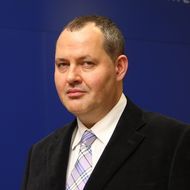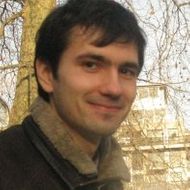- A
- A
- A
- ABC
- ABC
- ABC
- А
- А
- А
- А
- А
- HSE University
- Faculties
- Faculty of Economic Sciences
- Events
- FES International Research Seminar Series with Associate Professor Quoc-Anh Do, Sciences Po (Institute of Political Studies), France
-
Departments
- Departments
-
Institutes and Centres
-
- Institute of Economics and Utility Regulation
- Institute for Industrial and Market Studies
- Centre for Labour Market Studies
- International Centre of Decision Choice and Analysis
- Centre of Development Institute
- Centre for Financial Research & Data Analytics
- Economic Statistics Centre of Excellence
- Anti-Corruption Centre
-
-
Laboratories
-
- International Laboratory for Macroeconomic Analysis
- International Laboratory of Stochastic Analysis and its Applications
- International Laboratory for Experimental and Behavioural Economics
- Corporate Finance Center
- Laboratory for Banking Studies
- Laboratory for Labour Market Studies
- Laboratory for Sport Studies
- Laboratory for Wealth Measurement
- Project Laboratory for Development of Intellectual Competitions in Economics
- Laboratory for Spatial Econometric Modeling of Socio-Economic Processes in Russia
-
- Department of Financial Market Infrastructure
- ICEF
-
Educational Programmes
- Bachelor's Programmes
-
Master's Programmes
-
- Economics and Economic Policy
- Agrarian Economics
- Stochastic Modeling in Economics and Finance (Previously, Master's in Statistical Modelling and Actuarial Science)
- Statistical Analysis in Economics
- Economic Analysis (Online)
- Strategic Corporate Finance
- Financial Markets and Institutions
- Corporate Finance
- Financial Engineering
- Master of Business Analytics (Online)
- Investments in Financial Markets (Online)
-
- Doctoral Programmes
-
Faculty
109028, Moscow,
11 Pokrovsky Boulevard,
Room Т-614
Phone: (495) 628-83-68
email: fes@hse.ru
Founded in 1992, the HSE Faculty of Economics is the university’s oldest faculty. In the years since it was founded, it has gained a reputation as Russia’s leader in terms of higher economic education.
A fundamental education in modern economic theory and mathematics is combined with the study of applied disciplines, such as taxation, budget policies and processes, financial management and other related fields.
Elena Makeeva, Popov K., Teplova O.
Frontiers in Environmental Science. 2024. Vol. 12.
In press
In bk.: Oxford Research Encyclopedia of Economics and Finance. Oxford University Press, 2024.
Dagaev D., Paklina S., Parshakov P.
Social Science Research Network. Social Science Research Network. SSRN, 2024

FES International Research Seminar Series with Associate Professor Quoc-Anh Do, Sciences Po (Institute of Political Studies), France
Our next speaker in the FES International Seminar Series is Quoc-Anh Do, who is an Associate Professor of Economics at Sciences Po (Institute of Political Studies) in Paris, and a Research Affiliate of CEPR. Quoc-Anh's research interests span over several applied micro topics, especially political economics, economics of social networks, development economics, economic history, and corporate governance. His publications appeared in many top journals including AER, QJE, JEEA and AEJ: Applied.
Please note that the time of the seminar is 15:10-16:30!
Speaker: Quoc-Anh Do, Sciences Po
Title: Friendship Networks and Political Opinions: A Natural Experiment among Future French Politicians (with Yann Algan, Nicolo Dalvit, Alexis Le Chapelain and Yves Zenou)
Abstract: We study how friendship shapes students’ political opinions in a natural experiment. We use the indicator whether two students were exogenously assigned to a short-term “integration group”, unrelated to scholar activities and dissolved before the school year, as instrumental variable for their friendship, to estimate the effect of friendship on pairwise political opinion outcomes in dyadic regressions. After six months, friendship causes a reduction of differences in opinions by one quarter of the mean difference. It likely works through a homophily-enforced mechanism, by which friendship causes politically-similar students to join political associations together, which reinforces their political similarity. The effect is strong among initially similar pairs, but absent in dissimilar pairs. Friendship affects opinion gaps by reducing divergence, therefore polarization and extremism, without forcing individuals’ views to converge. Network characteristics also matter to the friendship effect.
Date: May 27, 2019 (Monday)
Time: 15:10-16:30
Venue: Shabolovka campus, room 3211
For external participants: to order the pass, please contact Disa Malbakhova dmalbakhova@hse.ru
- About
- About
- Key Figures & Facts
- Faculties & Departments
- International Partnerships
- Faculty & Staff
- HSE Buildings
- Public Enquiries
- Studies
- Admissions
- Programme Catalogue
- Undergraduate
- Graduate
- Exchange Programmes
- Summer University
- Summer Schools
- Semester in Moscow
- Business Internship
-
https://elearning.hse.ru/en/mooc/
Massive Open Online Courses
-
https://www.hse.ru/en/visual/
HSE Site for the Visually Impaired
-
http://5top100.com/
Russian Academic Excellence Project 5-100
- © HSE University 1993–2024 Contacts Copyright Privacy Policy Site Map
- Edit





